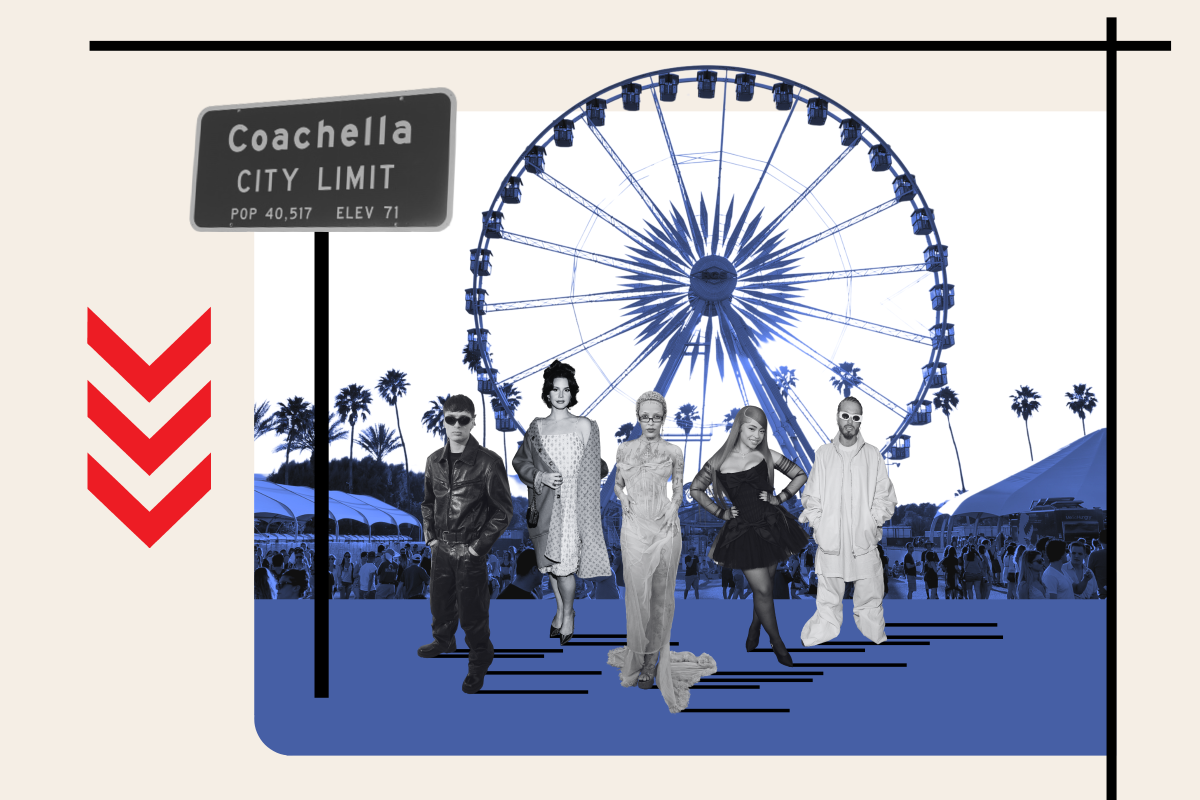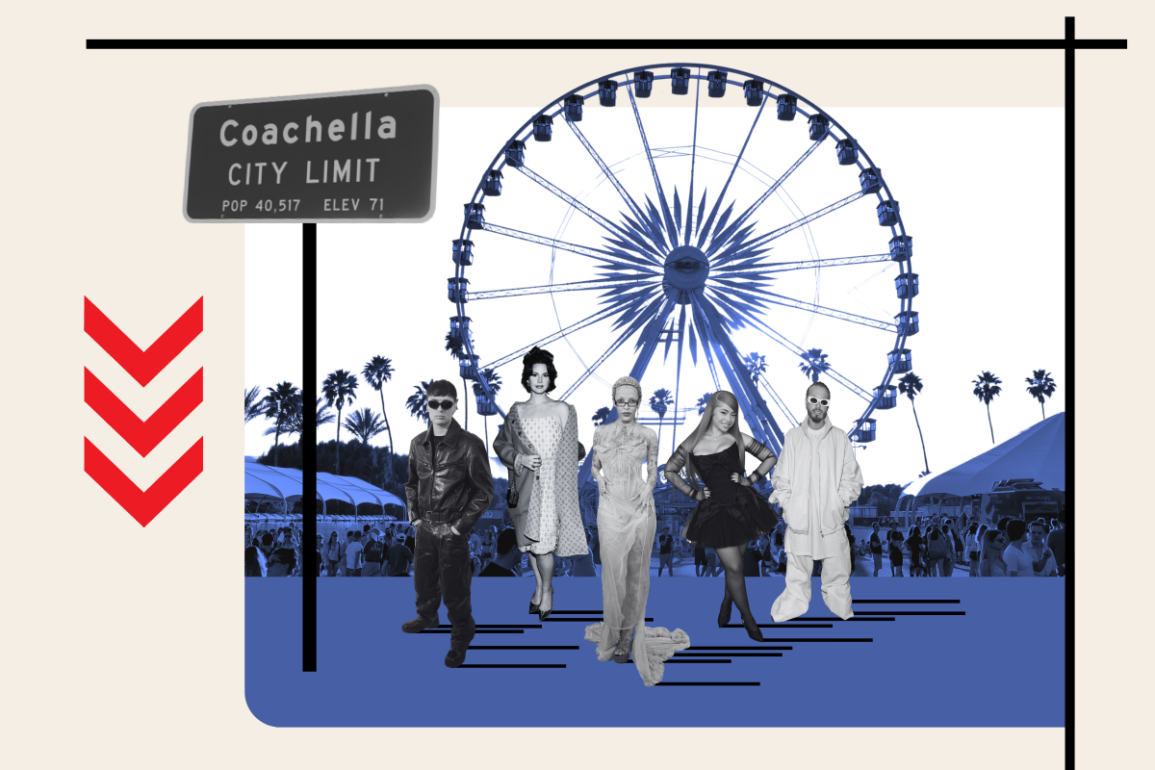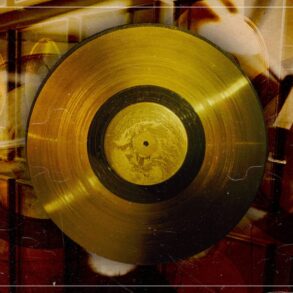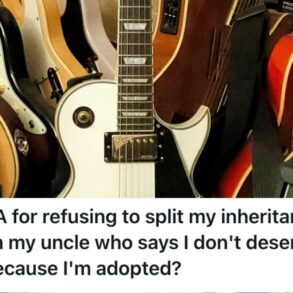Coachella, the iconic music festival held in the California desert has raised eyebrows this year for all the wrong reasons, leading some to question long-term viability. But experts have reflected on Coachella’s poor performance and spoke to Newsweek about the wider state of the music festival industry.
In 2023, it was the first time in 11 years that the festival did not sell out both its weekends and this year it has taken one whole month to sell out the first weekend. Considering over the past few years tickets sold out anywhere between 40 minutes to four hours, some have begun to wonder what has made Coachella less popular than ever.
Not even rumors of Taylor Swift attending this year’s festival in April with new beau Travis Kelce have been able to bolster sales.

The world-famous music festival is struggling to sell tickets after previously selling out both weekends with ease.
Photo-illustration by Newsweek/Getty
Some fans slammed the line-up which includes headliners, Lana Del Rey, Tyler the Creator and Doja Cat, and even a reunion by 1990s mega-band, No Doubt, and blamed that for the low sales.
Newsweek contacted GoldenVoice the organizers of Coachella by email but did not receive a reply at the time of publishing.
Coachella got its start in 1999 and quickly became not only the biggest festival in the U.S. but one of the most famous in the world. Aside from its cultural impact— it also hosts art installations away from the music stages—the festival is also an economic juggernaut.
On average, around 125,000 people attend Coachella each day over its two weekends, and in 2019 it made more than $114 million in gross receipts, according to market data site, Gitnux. In 2011, it was estimated that Coachella made $704 million for the local economy and created around 5,000 new jobs every year.
It’s great for tourism as well; in 2019, 22.6 percent of attendees came from overseas.
Traditionally, Coachella was so popular that many people would buy a ticket to it before even seeing the line-up for the year.
“What makes a festival good, is that people want to keep going back,” Vito Valentinetti, co-founder of the Music Festival Wizard website, which informs people about events around the world, tells Newsweek.
“A lot of the best festivals are about the experience and the vibe. There’s a lot of festivals where people will just buy a ticket without knowing what the lineup such as Glastonbury in the U.K.”
Valentinetti explains that it may be unusual for Coachella’s sales to be sluggish but he’s “not worried” about its future in the slightest. But he suggests organizers might need to reevaluate its sustainability as a two-weekend event and reconsider having an identical line-up on both weekends.
He attributes issues such as the cost of living crisis as a huge factor that forces people to be more discerning about how they spend their money.
“Coachella is not a cheap festival,” he says of the entry-level price of $599 for general admission. That does not factor in the cost of accommodation, as there’s no on-site camping and travel to Coachella’s remote site at the Empire Polo Club in Indio, California.
That’s a huge deterrent for music writer and festival connoisseur, Jameson Scarsella, who as a Gen-Z in the early days of his career, he can’t justify the cost even for a day pass to the festival.
“The biggest problem for Coachella is just that it’s starting to get too expensive,” he tells Newsweek.
“First of all, California is so expensive to begin with. To get to Coachella you can fly into Los Angeles and then drive which takes four hours, or you can fly into Palm Springs but that costs more money. And you have to have a hotel to be able to go to the festival, then there’s the cost for food, so it’s just impossible for some people.”
Scarsella says it is too “huge of a commitment for time, for money and for logistics.”
This year’s festival has also been hindered by what Scarsella describes as the “Frank Ocean debacle” of 2023 which saw the reclusive singer give a rare performance that the writer described as “lackluster”. Ocean then dropped out of the second weekend blaming an injury, which left fans angry and in the lurch.
Both Scarsella and Valentinetti have observed that rather than investing big bucks into attending Coachella, many music fans are opting to attend smaller and more local festivals. Some are also using it as a reason to travel overseas for an enriched cultural experience.
“I really enjoy the travel aspect of it… Usually, the first time I’ve been to some of the most of the countries in Europe is for a festival and it’s an interesting way to dive right into it and not a normal tourist site,” Valentinetti explains.
What is happening with Coachella is not necessarily emblematic of a wider issue in the music festival scene. While many have been impacted by higher production costs and punters struggle with the cost of living, the festival industry is still doing well.
John Rostron is the chief executive of the Association of Independent Festivals (AIF) which is the UK’s leading festival representative body.
Many of his members, even the bigger festivals which host up to 80,000 people, are doing well but admitted “Coachella is likely worried” about its poor ticket sales. He explains that might have to do with some of the negative stereotypes the festival has gained in recent years, including the rise of social media influencers believed to be dominating the event and diluting its edginess.
“Coachella never gets very favourable coverage over here [in the U.K]. From here, it looks like quite a bland offer and doesn’t look like some of the smaller festivals we have that are full of color and variety, with people of all types,” Rostron said, adding, “When we look at Coachella, it doesn’t look particularly exciting.”
The after-effects of the Covid-19 pandemic are still being felt and research by AIF found one in six festivals were cancelled permanently because of it.
Rostron also points out many young people are not as comfortable hanging out in large crowds as previous generations. Rostron explains that the coronavirus “has shifted what people want from their experience.”
Take for example, how Gen-Z wants less alcohol and more healthy experiences when attending music festivals, forcing many to reconsider what they offer audiences.
That’s something that Scarsella can definitely relate to as one of many Gen-Z who missed formative social experiences because of the pandemic.
“Most Gen-Z people want it to be affordable, have a variety of performers and be logistically accessible,” he says.
But people in a post-pandemic world might also be feeling a sense of fatigue after rushing to get back to normal life, including musicians eager to get back on the road.
“There was such a rush after the pandemic and everybody was so excited to get back to it, and every artist was ready to go back on tour, and it seemed like everything was great again,” Valentinetti says, adding, “But now, I think it’s pulling it back a bit.”
Uncommon Knowledge
Newsweek is committed to challenging conventional wisdom and finding connections in the search for common ground.
Newsweek is committed to challenging conventional wisdom and finding connections in the search for common ground.
This post was originally published on this site be sure to check out more of their content








